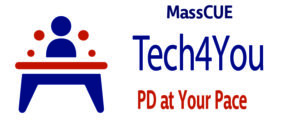
Young people today are dealing with the most challenging information landscape in human history. Digital tools, combined with social media, make it easy for anyone to create and spread misinformation and disinformation. Truth, evidence and facts compete for attention alongside rumors, conspiracy theories and false information. In this two part workshop, we will explore free digital tools and resources available through the News Literacy Project, and learn how to easily integrate news literacy across subject areas and grade levels, in both remote and in person learning. You will leave the workshop with concrete tools, strategies and lesson plan ideas to spark meaningful classroom discussion as well as to provide students with the tools needed to evaluate and interpret information.
REGISTRATION DEADLINE: September 27, 2021
Course Details
| Audience | K-12 Teachers, Library Media & Tech Specialists, Ed Leaders |
| Level | All Levels K-12 |
| Instructor | Cathy Collins |
| Dates | October 4 – October 18, 2021
Required Google Meet: Monday, October 18, 2021 @ 4pm |
| Earn | 3 PDPs |
| Location | Online |
| MassCUE Member Cost | $45 |
| Non-Member Cost | $55 |
| Limit | 25 Participants |
| Prerequisite | none |
Cathy Collins

Cathy Collins has worked as a Library Media & Technology Specialist for 23 years at the K-12 level. She is currently serving as a Technology Teacher at Sharon Middle School, where she teaches Engineering & Design, Media Literacy and a hybrid STEM/history course called “Inventions through Time.” She holds a Doctorate in Education with a specialization in Curriculum, Leadership, Teaching and Learning; and additional Masters Degrees in Education and Library Science. Dr. Collins served on the MassCUE Board as PD Chair from 2015-2019. She has published her writing in various journals including “EdWeek,” “Library Media Connection,” “NEA Today,” and “Knowledge Quest.” She is a 2012 Reynolds High School Journalism Institute Fellow and served as a project consultant for the E-Book, “Searchlights and Sunglasses: Journalism in the Digital Age.” She is currently serving as a News Literacy Project Ambassador. She received a “Teachers for Global Classrooms” fellowship from the U.S. State Dept. in 2014 and is the recipient of AASL’s Intellectual Freedom Award (2015). She was named an MSLA “Super Librarian” in 2015. She served on the MA State Science Ambassador Team, ISTE STEM PLN Leadership Team, and was elected in December, 2020, to the ISTE Board of Directors. She is passionate about media literacy, STEM/STEAM and global education. In addition to having coordinated the Chinese Exchange Program at Sharon High School for many years, she has journeyed with students to India, Peru and Tanzania, Africa.
Weekly Outline:
Session 1: Asynchronous introduction beginning Monday, October 4, 2021 to the six News Literacy Project focus areas detailed below.
Session 2: Virtual face to face overview and discussion on Monday, October 18th, of free NLP digital tools and resources with strategies to carry back into the classroom across grade levels and subject areas.
- What it means to be news-literate — an overview of news literacy education: an overview of the news literacy concepts and skills that students need to be reliably informed, such as recognizing the difference between news and opinion, identifying misinformation, evaluating evidence, using fact-checking and digital verification tools, and discerning various types and forms of bias.
- Teaching digital verification skills to spark news literacy learning: Dive into the tools and skills needed to verify the authenticity of information and learn to create engaging fact-checking investigations that empower students to investigate and debunk viral content. Topics include learning to use reverse image searches and fact checking sites to determine authenticity of photos and video; developing critical observation skills to determine original context
- Evaluating the quality of standards-based journalism: Learn more about why students need to have an understanding of mainstay journalism concepts such as verification, fairness, accountability and independence — and how to build on that understanding in ways that empower students to identify credible news reporting and respond to coverage that is lacking.
- Exploring the misinformation landscape: Learn how to teach students to move beyond the unhelpful term “fake news” to more precisely identify the many types of misleading, inaccurate and false information that they encounter. By teaching a deeper understanding of misinformation, students can become less susceptible to it and more likely to prioritize reliable, verified sources of news and information.
- Understanding bias: People frequently perceive and allege bias in news coverage, but what does this really mean? What makes a piece of news biased, and who decides? What role do our own biases play in our perceptions of bias? We’ll explore ways to help teach this controversial, complex topic in ways that empower students to meaningfully evaluate the fairness and impartiality of news coverage.
- Using news literacy to drive civic engagement: Consuming, engaging with, sharing and creating information are the most fundamental and common civic actions that anyone can take. We’ll explore the connection between news literacy and civics and discuss how news literacy learning can ignite civic engagement and improve civic literacy and reasoning. Educators leave with tips, ideas and strategies for using news literacy to supercharge a “consume/engage/create” cycle around timely issues.
This workshop addresses the DESE Digital Literacy and Computer Science (DLCS) Curriculum Framework, Grades K-8 and 9-12 Standards:
- Digital Tools and Collaboration – Research, Collaboration and Communication
Sign Up for This Workshop
Empowering Students Through News Literacy October 4 – October 18, 2021 Required Google Meet: Monday, October 18, 2021 @ 4 pm.
Register Now [7]